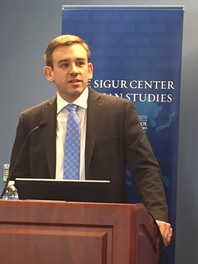
I've gotten a couple requests for the slides from my presentation; they're linked here.
The short version of the talk: reform of the Legislative Yuan should be at the top of the priority list for the next president. Outside of Taiwan, the potential twists and turns in cross-Strait relations dominate the conversation and tend to overshadow everything else happening in the domestic arena. But there are a lot of problems facing Taiwan right now that don't directly involve cross-Strait relations.
- a low tax base combined with a highly uneven distribution of the tax burden;
- widespread unhappiness with the Ma administration's China-first economic strategy, but no consensus about what to do instead, and long-standing opposition in the legislature to the kinds of domestic reforms required to enter the Trans-Pacific Partnership;
- a declining defense budget, now at 2% of GDP, and rising personnel costs from the faltering transition to an all-volunteer military force;
- a potential energy crisis driven by rising opposition to nuclear power without development of realistic alternatives.
Whatever the next administration tries to do, it will face opposition from some corners of the legislature representing vested interests that would lose out under reforms. Under the Legislative Yuan Speaker Wang Jin-pyng, the LY's cross-party negotiation mechanism has in practice given any party caucus--even one with just three members--the ability to block most legislation. So the current system will prevent major changes on any of these issues unless Speaker Wang is replaced and the negotiation mechanism is weakened or abolished.
If the DPP wins a majority in the legislature, it will have a golden opportunity to reform the party caucus system and make it easier to pass legislation with a simple majority vote. It's critical for their own political future, for Tsai Ing-wen's, and probably for Taiwan's, that they do.
 RSS Feed
RSS Feed
